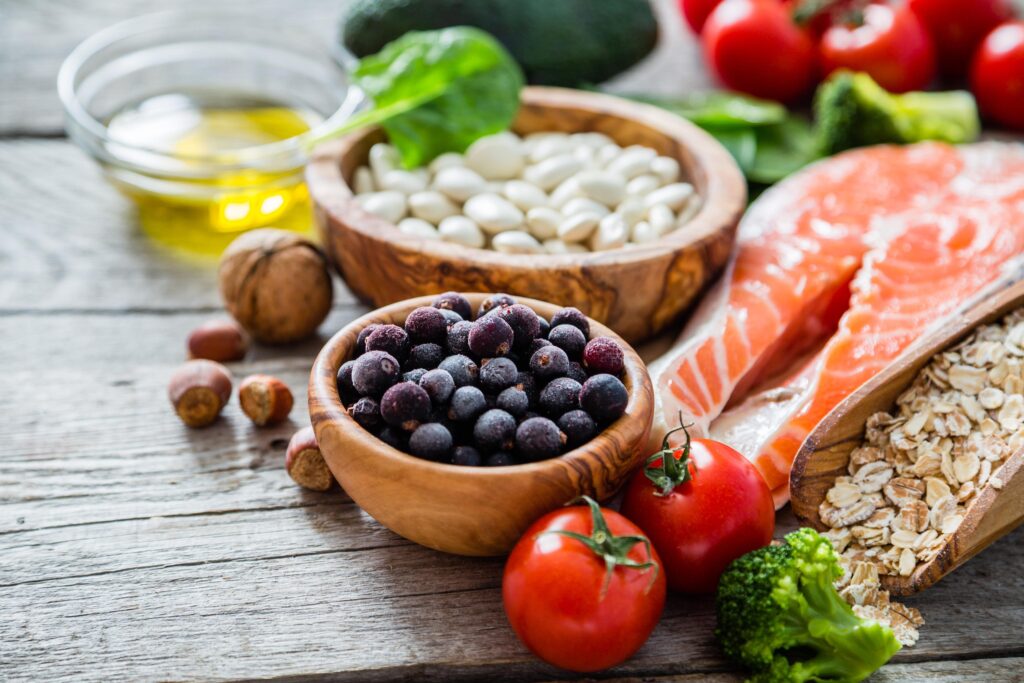In recent years, teh conversation around gut health has gained important momentum, becoming a focal point of interest for researchers, health professionals, and wellness enthusiasts alike. Our gut, often referred to as our “second brain,” plays a crucial role in overall health, influencing everything from digestion and immune function to mood and brain health. But what many people may not realize is how deeply our dietary choices impact the intricate ecosystems within our digestive systems. In this article, we will delve into the connection between nutrition and gut health, exploring how various foods can either nurture or disrupt this delicate balance.By understanding the relationship between what we eat and how it affects our gut, we can make informed choices that promote our well-being and enhance our quality of life. Whether you’re a seasoned health expert or simply curious about what you can do to support your gut, join us as we navigate this essential aspect of holistic health.
Table of Contents
- Understanding the Gut Microbiome and Its Role in Digestion
- Nutritional Powerhouses: Foods That Support a Healthy Gut
- The Impact of Fiber and Fermented Foods on Gut Health
- Practical Tips for Improving Gut Health Through Diet
- The way Forward
Understanding the Gut Microbiome and Its Role in Digestion
The gut microbiome is a complex community of microorganisms that resides in our intestines, playing a pivotal role in the digestive process. These tiny organisms, which include bacteria, viruses, fungi, and archaea, work harmoniously to break down food, absorb nutrients, and synthesize essential vitamins. Key functions of the gut microbiome in digestion include:
- Fermentation: Aiding in the fermentation of undigested carbohydrates, resulting in short-chain fatty acids that can be absorbed and utilized by the body.
- Bacterial Diversity: A diverse microbiome contributes to a more efficient breakdown of a variety of foods, enhancing nutrient absorption.
- Immune System Support: Maintaining a healthy gut microbiome can strengthen the intestinal barrier and modulate immune responses, reducing the risk of digestive disorders.
Nutritional choices substantially influence the composition and function of the gut microbiome. Diets rich in fiber, prebiotics, and probiotics promote the growth of beneficial bacteria, enhancing gut health and overall digestion.Conversely, high sugar and processed food intake can lead to dysbiosis, where harmful bacteria outnumber beneficial ones. To support a thriving gut microbiome, consider:
- Incorporating fermented foods: Such as yogurt, kefir, and sauerkraut, which introduce beneficial microorganisms.
- Eating a variety of fruits and vegetables: To provide diverse nutrients and support bacterial diversity.
- Keeping hydrated: Adequate water intake is essential for digestive processes and maintaining a healthy microbiome.
Nutritional Powerhouses: Foods That Support a Healthy Gut
Your gut health is significantly influenced by what you eat, and incorporating the right foods can make a world of difference. Among the best choices are fermented foods, which introduce beneficial probiotics into your gut.These tasty options not only enhance flavor but also boost your digestive system. Some top fermentable favorites include:
- Kefir: A tangy, yogurt-like drink rich in probiotics.
- Kraut: Fermented cabbage that packs a flavorful punch.
- Kombucha: A fizzy tea loaded with healthy bacteria.
- Miso: A savory paste made from fermented soybeans.
Another vital category includes fiber-rich foods, essential for nurturing a healthy microbiome. These foods feed the good bacteria in your gut, helping them flourish and maintain balance. Consider incorporating these nutritious powerhouses into your meals:
- Whole grains: oats, brown rice, and quinoa are excellent sources.
- Fruits: Apples, bananas, and berries offer both taste and texture.
- Vegetables: Broccoli, artichokes, and carrots are fiber-rich and versatile.
- Legumes: Beans and lentils are not just hearty—they are also fiber-packed.
The Impact of Fiber and Fermented foods on Gut Health
Incorporating fiber-rich foods into your diet is essential for maintaining a healthy gut. Fiber acts as a prebiotic, feeding the beneficial bacteria that reside in your gut. When you consume adequate fiber, you’re promoting the growth of these microorganisms, which play a pivotal role in digesting food and producing essential nutrients. Some fiber-rich options include:
- Whole grains like oatmeal and quinoa
- Fruits such as apples and bananas
- Vegetables, especially leafy greens and carrots
- Legumes, including beans and lentils
Fermented foods, conversely, introduce live bacteria, frequently enough referred to as probiotics, directly into your digestive system. This direct supply of beneficial microbes can help restore balance in your gut flora, especially after disturbances caused by antibiotics or unhealthy eating habits. Including fermented options in your meals can significantly boost your gut health, with popular choices including:
- Yogurt and kefir
- Kombucha
- Kimchi and sauerkraut
- Miso and tempeh
Practical Tips for Improving Gut Health Through Diet
Improving gut health can often begin with making mindful dietary choices that support a thriving microbiome. Incorporating a variety of fiber-rich foods can play a significant role, as fiber acts as a prebiotic, feeding the beneficial bacteria in your gut. Consider adding the following to your meals:
- Legumes (beans, lentils, and chickpeas)
- Whole grains (brown rice, quinoa, and oats)
- Fruits (berries, apples, and bananas)
- Vegetables (broccoli, carrots, and artichokes)
In addition to fiber, including fermented foods can introduce beneficial probiotics that enhance gut flora diversity. Aim to integrate these tasty options into your daily diet:
- Yogurt (look for live and active cultures)
- Kefir (a fermented milk drink that is rich in probiotics)
- Kraut (fermented cabbage that can jazz up any meal)
- Miso (a traditional Japanese seasoning produced by fermenting soybeans)
The Way Forward
As we wrap up our exploration of the connection between nutrition and gut health, it’s clear that what we put on our plates can significantly influence our digestive well-being. From probiotics and fiber-rich foods to the impact of processed ingredients,understanding how nutrition affects our gut opens up a world of possibilities for enhancing overall health.
While the nuances of gut microbiota and dietary choices can be complex, the journey to better gut health starts with simple, mindful changes in our eating habits. Consider incorporating a variety of whole foods, paying attention to how your body reacts, and, if necessary, consulting with a healthcare professional for personalized advice.Remember, nurturing your gut is not just a trend; it’s an investment in your long-term health. Stay curious, keep learning, and enjoy the process of discovering what works best for you. Until next time, take care of your gut, and it will take care of you!







